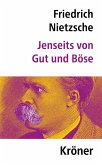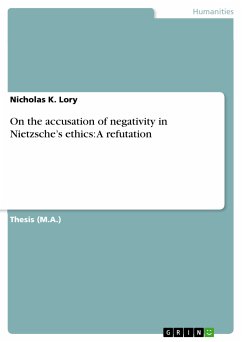It is difficult to approach a question on the negativity of Nietzsche's philosophy without a degree of prejudice. Nietzsche, considerably more than most philosophers, has permeated Western popular culture to the extent that his name entails specific, negative connotations even to the layman. Although, this is perhaps in part due to an unfair association with Hitler, claims that Nietzsche promotes an inherently negative philosophy are present even in academic treatments. It is among such academics that the most serious accusation against Nietzsche arises; namely that of Nietzsche being a nihilist. While accusations related to Nazism can relatively easily be refuted, other accusations are not quite as unfounded: Nietzsche encouraged strength and power; he called himself an "immoralist"; he rejected democracy and human equality; he promoted the notion of an "Übermensch"; and he did encourage nihilism. The author discusses these negative associations in terms of Nietzsche's philosophy. He exposes this common fallacy by interpreting the various elements of Nietzsche's ethics in the context of his philosophy as a whole.
Dieser Download kann aus rechtlichen Gründen nur mit Rechnungsadresse in A, B, BG, CY, CZ, D, DK, EW, E, FIN, F, GR, HR, H, IRL, I, LT, L, LR, M, NL, PL, P, R, S, SLO, SK ausgeliefert werden.









